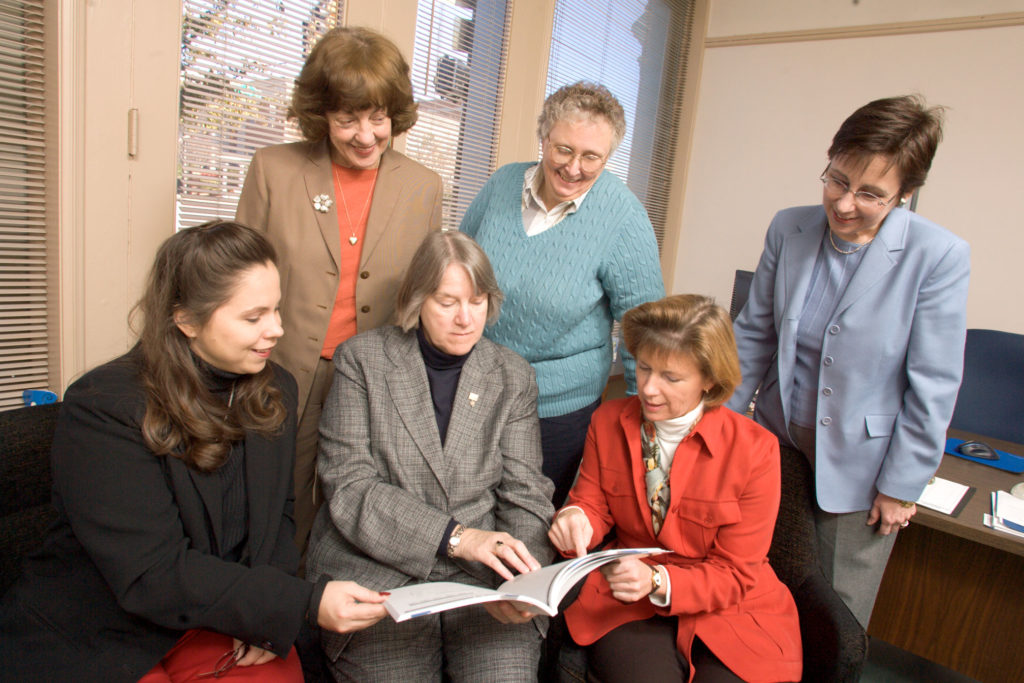“Like many middle-aged people, it’s easy for me to remember my own undergraduate experience, which is vastly different compared to today’s undergraduates,” says Merrily Dunn, assistant professor in counseling and human development services. Indeed, the modern issues that the “millennials” face are different even from the more recent experiences of “Generation X” students, she says.
Dunn is part of a group that seeks to share research done on UGA undergraduates; the goal is to “empower faculty” in knowing the specific needs of their students, according to group member Jan Davis Barham, assistant to the vice president of student affairs for assessment and staff development.
This past spring, Ann Crowther, associate vice president for instruction, invited a group of faculty and administrators representing academic affairs, student affairs and public service to have conversations about the research taking place regarding UGA students, and how that data might best be provided to faculty. The group—Sue Achtemeier, director for planning and accreditation; Barham; Karen Bauer, director of Institutional Research; Diane Cooper, associate professor and head of counseling and human development services; Crowther; and Dunn—have met several times to discuss what they collectively know about UGA’s students and identify other faculty, administrators and graduate students who have conducted research about UGA students.
Examples of such available data include the National Survey of Student Engagement, and the results of the division of student affairs’ Web-based Student Needs Assessment Profile, conducted fall 2004.
The SNAP data gathered so far supports the belief that involvement on campus, both in and out of class, makes for a happier college experience. In fact, the group has found that the interest today’s students have in organized activities far surpasses that of previous generations.
Data from the NSSE, SNAP and other studies conducted on campus might also be of use in the 2009-2010 Southern Association of Colleges and Schools accreditation process, according to Achtemeier. At the last SACS accreditation in 1999-2000, the focus that emerged was the academic environment for students; the university responded by forming the Center for Undergraduate Research Opportunities and expanding the Honors Program and service-learning projects, she says.
“Accreditation is a self-analyzing process, as opposed to a government inspector giving you a license,” says Achtemeier.
Future plans of the group include discussing how best to identify other faculty, staff and administrators conducting research on UGA students, and how to make that research find a broader audience. In the meantime, Crowther invites any UGA faculty or administrators who collect information on UGA students to join the effort by contacting any group member.
“The more people we can engage, the better it is,” she says, “and the less duplication of information.”
